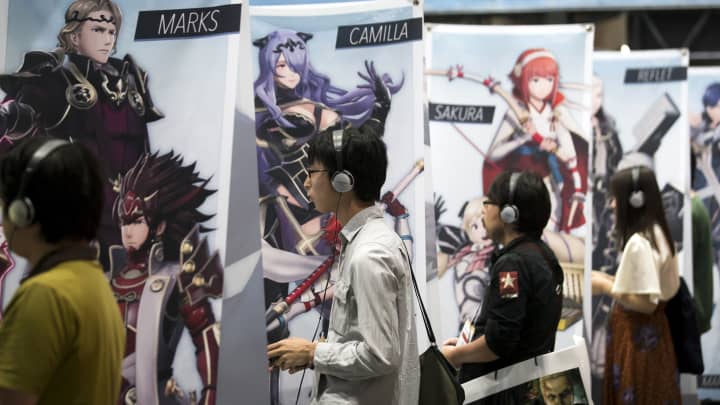
TOKYO — Video games are in focus with the Tokyo Game Show 2023 underway — but some of the biggest game developers in Japan say hot trends like generative AI and virtual reality/augmented reality headsets for game development may not be ready yet.
Game developers like Japan's have been using conventional algorithmic AI "for a long time," Hisashi Koinuma, president and chief operating officer of Koei Tecmo Games told CNBC, but challenges still remain when utilizing the latest iteration — generative AI — in game development.
"We are not yet at the stage of integrating generative AI into our products, but are in the process of testing various ways to integrate it in the future," Koinuma said Wednesday.
"We are still in the process of researching and studying how and to what extent generative AI, including rights-related issues, will benefit game production, and how much it will contribute to making better games."
The issue with copyright concerns is not one shared by Koei Tecmo alone.
Earlier in September, told users of Copilot, its generative AI service, the company will assume legal responsibility if there is any copyright infringement.
The possibilities in the gaming space are huge.
Nvidia demonstrated in August the potential for gamers to interact with non-player characters in new ways with the Nvidia Ace and Nemo SteerLM, in what was mooted as "bringing intelligence to non-playable characters (NPCs) through AI-powered natural language interactions" — a move that has the potential to revolutionize the industry.
While generative AI might be a new frontier, the surge in development of VR & AR headsets is another, particularly following 's Vision Pro announcement last quarter, Meta's continual development of their Quest line of products and 's recent VR2 release.
But for many, the games available so far have not met the expectations of the devices.
It's a feeling shared by veteran developer Koinuma who is excited about the possibilities, but cautious on the execution after an initial foray into the space.
"We were one of the first companies that tried to develop VR games," he said. "However, it was still too early: There were various obstacles, such as the gadgets themselves not being suitable for playing games for long periods of time."
"We felt that these products were not yet at the stage of being a tool that could provide pure enjoyment that you can get from playing games," Koinuma added.
"So, VR, Meta, or whatever, I realized after my first entry that it would be difficult for us to be successful in the market until the 'soil' is cultivated well for users to be able to play games with new devices for a long time. So we would like to try again when the time comes."




